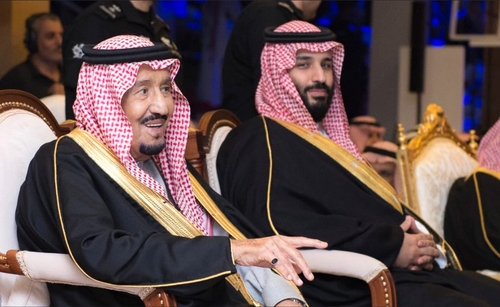Israel Today: What is the future of Islamism in the Middle East and North Africa?
Daniel Pipes: Decline. I predicted in 2013 that Islamism would begin to weaken in Muslim-majority countries; eight years later, this prediction looks quite good. Look, for example, at Morocco, Algeria, Libya, Egypt, Turkey, Saudi Arabia, and Iran. This decline results mostly from Muslims' negative reactions when they either personally experience the horrors of Islamism or watch others suffering; it also results from Islamist in-fighting, as in Libya and Turkey.

IT: Egypt and most Arabic-speaking Persian Gulf countries have banned the Muslim Brotherhood and the organization's allies recently suffered major losses in Tunisia and Morocco; how important are these developments?
DP: They are important. In part, they reflect the larger decline of Islamism mentioned above and, in part, they reflect the particular travails of the Muslim Brotherhood and its allies ever since Abdel Fattah al-Sisi came to power in Egypt in 2013. That this once-leading Islamist organization faces such troubles has implications around the world, wherever the brotherhood exists.
IT: Some on Israel's Right argue for Jordan-is-Palestine as the solution to the Palestinian-Israeli conflict, claiming that Jordan is the Palestinians' true homeland. You opposed this view in the 1980s; has anything changed?
DP: Yes, two developments further confirm my views. One concerns the lowered Palestinian percentage of the Jordanian population due to the massive influx of Iraqis and Syrians since 1990; Jordan now has a substantially less Palestinian makeup. The other concerns the ever-stronger identification with the Palestinian identity, which emerged only in 1920 and so was 70 years old in 1990 and over 100 years old now. Fortunately, one hears much less among Israelis about the Jordan-is-Palestine folly now than earlier.
IT: What do you see as the solution for the Palestinian-Israeli conflict?
 DP: Israel Victory. That is, Israel taking the steps necessary to convince the Palestinians of the West Bank and Gaza that their war effort versus the Jewish state is hopeless, that they should come to terms with reality and move on. Want more details? My bibliography lists 65 articles on this topic; I suggest starting with "The Way to Peace: Israeli Victory, Palestinian Defeat."
DP: Israel Victory. That is, Israel taking the steps necessary to convince the Palestinians of the West Bank and Gaza that their war effort versus the Jewish state is hopeless, that they should come to terms with reality and move on. Want more details? My bibliography lists 65 articles on this topic; I suggest starting with "The Way to Peace: Israeli Victory, Palestinian Defeat."
IT: How important are the Abraham Accords between Israel and the United Arab Emirates, Bahrain, Sudan, and Morocco?
DP: They are both important in themselves, especially the UAE and Bahraini ones with their many economic and strategic dimensions, and as signals to the Palestinians that some Arabs are getting impatient with rejectionism and intransigence. If the Palestinians insist on trying to eliminate the Jewish state, their Arab brethren are starting to move on.
IT: Do you expect more governments to join the accords? If so, which ones?
DP: I do. Saudi Arabia is the big prize. Presumably, this will not happen so long as King Salman, 85, reigns, he being an old-fashioned Arab nationalist. But Riyadh will quite possibly deal publicly with Jerusalem should the crown prince, Mohammad bin Salman, succeed him. Saudi recognition of Israel would have far-reaching consequences and mark a turning point in the Arab-Israeli conflict in a way that the agreements since 1979 with Egypt, Jordan, the Palestine Liberation Organization, the United Arab Emirates, Bahrain, Sudan, and Morocco have not.
 Father and son. |
